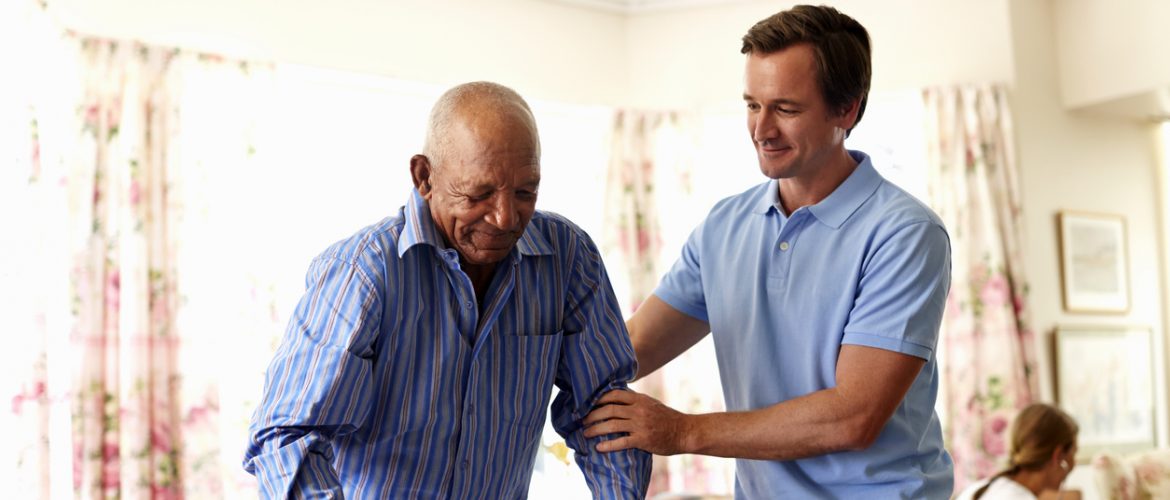In honour of Alzheimer’s Awareness Month, CABHI is releasing two new blogs a week about the innovative solutions changing the dementia narrative in Ontario, Canada, and around the world.
Caregivers are critical to the health and well-being of their family members or clients. According to The Change Foundation, family caregivers in Ontario provide approximately 10-30 hours of care per week, often while working full-time jobs or raising children[i]. They are also essential for facilitating healthy aging in place. Caregiver burnout is often associated with frequent emergency room visits and long-term care admissions for the individual being cared for[ii].
As Canada’s senior population continues to grow, caregivers will be vital to the development of a robust aging healthcare strategy, especially for older adults living with Alzheimer’s and dementia-related illnesses[iii].
When we invest in caregivers we invest in the quality of life for seniors in their care. The Centre for Aging + Brain Health Innovation (CABHI), powered by Baycrest, is working with innovators around the world to support caregivers in their roles so that they can care for their loved ones or clients while maintaining their own health and well-being. We share some of these innovations with you here:
Trualta
Family members play an increasingly important role in providing safe and competent care for loved ones with dementia living at home. Informal caregivers often provide care while juggling a career and family responsibilities, which can take a toll on their mental health, well-being, and finances. They have limited access to training on how to provide quality care, and that gap is particularly notable post-discharge from hospital.

Trualta founder Jonathan Davis and a caregiver.
Canadian company Trualta is working to help caregivers feel more confident in their roles with training and support tools conveyed through bite-sized video clips, which help them assist loved ones in continuing to live at home safely. Video topics include managing challenging behaviours such as wandering and lowering the risk of falls, which can be especially dangerous for individuals living with dementia.
Funding from CABHI’s Industry Innovation Partnership Program (I2P2) is enabling Trualta to demonstrate that its product improves health outcomes for individuals living with dementia, reduces the burden on their caregivers, and prevents re-admission to hospital emergency rooms – thus reducing the extent of hallway healthcare. With CABHI’s support, Trualta is on its way to making a tangible impact in the lives of family caregivers and their loved ones living with dementia in Ontario, Canada, and around the world.
Incentivized Self-Care
Almost half of all caregivers in Ontario work full-time jobs while also providing care to aging family members. Those who are retired, or over the age of 65, are more likely to be caring for a child or aging spouse. Studies show that without proper support, many caregivers can experience poor mental and physical health outcomes[iv].
Supported by CABHI’s Spark Program, a social work team from Baycrest is developing a solution to help caregivers lead healthier, more balanced lives using the BestLifeRewarded platform. The BestLifeRewarded program uses incentives to motivate healthy lifestyles and increase self-care among participants. By engaging in activities such as going for a walk or eating a nutritious meal, participants reap points that they can use at a movie theater or grocery store as part of a reward system. As they advance in the program, so do their rewards, boosting the likelihood that they will continue to practice self-care even after the program has ended.
With CABHI support, the team is assessing the effectiveness of their program for caregivers in a pilot study. The team predicts that the program will lead to better health outcomes for caregivers as well as the older adults they care for.
The Sleep Kit
Night-time agitation and sleep disturbances are common in people living with dementia[v]. Caregivers face the added challenge of tending to the needs of their loved ones or clients during these moments of restlessness and are often unable to rest or sleep themselves as a result.
With support from CABHI, therapeutic recreation coordinator Eve Baird developed a toolbox for caregivers called The Sleep Kit – an accessible, drug-free solution to solve the problem of poor-quality sleep in people living with dementia. The kit contains 13 items that caregivers can use with older adults to encourage one-on-one engagement before bedtime. Among them are custom-made dementia-friendly colouring books and markers, chamomile tea, a hair brush, a CD with calming music, and essential oils.

The Sleep Kit.
With joint funding from CABHI and the New Brunswick Health Research Foundation, Baird tested the kit with caregivers in the Fredericton, Moncton, and Saint John areas in New Brunswick. Her research revealed that the kit did in fact improve sleep quality, especially for adults in long-term care. Caregivers benefited too. Over 95% of long-term care caregivers said the kit helped them provide more effective care for their clients and 81% of caregivers in the community said it helped them engage more with those in their care.
With CABHI’s help, Baird is working on a plan to scale and spread the kit to market, to reach a wider audience.
The Sleep Kit is now available for purchase online.
Virtual Reality Training for Caregivers
Providing real-world training sessions for formal caregivers is a challenging but necessary means of developing safe and compassionate dementia care practices. Semi-simulated training sessions – with people acting out the role of caregiver and patient – is a viable but limited solution. Ensuring both participants are safe throughout the session removes the risk of injury that would be present in a real-life scenario. However, without the risk of injury, learners are not able to fully experience the complex situations that often progress into physical threats from patients. Semi-simulated training sessions can also be expensive to run.
By leveraging support from CABHI’s Spark Program, The Michener Institute of Education at UHN is testing an innovative solution that allows caregivers to train in a fully immersive virtual reality (VR) experience. The VR platform transports trainees into a completely simulated situation where they can learn more about the best de-escalation practices to use when caring for responsive patients. The platform also allows the user to see the simulated experience through the eyes of someone living with dementia. This helps to build empathy and compassionate care practices among caregivers. The Michener Institute will create a formal model that will provide effective training for both formal and informal caregivers.
Dementia Talk App
Baycrest project manager Einat Danieli created the Dementia Talk App to help support caregivers of people living with dementia better care for their loved ones and clients. The app works as a tool for caregivers to track and manage responsive behaviours. Its six features—a behaviour tracker, behaviour care plan, ‘my team’ sharing feature, medication list, calendar, and ‘caregiver corner’—act as a cohesive one-stop shop for a caregiver’s needs.

Einat Danieli with the Dementia Talk App
The app was developed by Danieli through her former work as an employee at the Sinai Health System’s Cyril & Dorothy, Joel & Jill Reitman Centre for Alzheimer’s Support and Training. CABHI funding allowed Danieli and her team to modify and expand some of the app’s back-end programming, as well as conduct beta testing of the app with a group of caregivers to gain valuable feedback about how to make it more user-friendly. The collaboration also gave Danieli access to CABHI’s acceleration services, which provide support to innovators in areas like business development in order to help speed up the commercialization or wide-scale adoption of their solution.
The Dementia Talk App was one of the first projects funded by CABHI’s Spark Program, which supports the development and testing of promising early-stage innovations in seniors’ care by point of care staff.
The app is now available on web, Android, and iPhone.
[i] https://www.changefoundation.ca/spotlight-on-caregivers-report/
[ii] https://www.hqontario.ca/Portals/0/documents/system-performance/reality-caring-report-en.pdf
[iii] Canada Must Prepare for Our Aging Population
[iv] 2nd Annual Spotlight on Ontario’s Caregivers: 2019, p. 17


